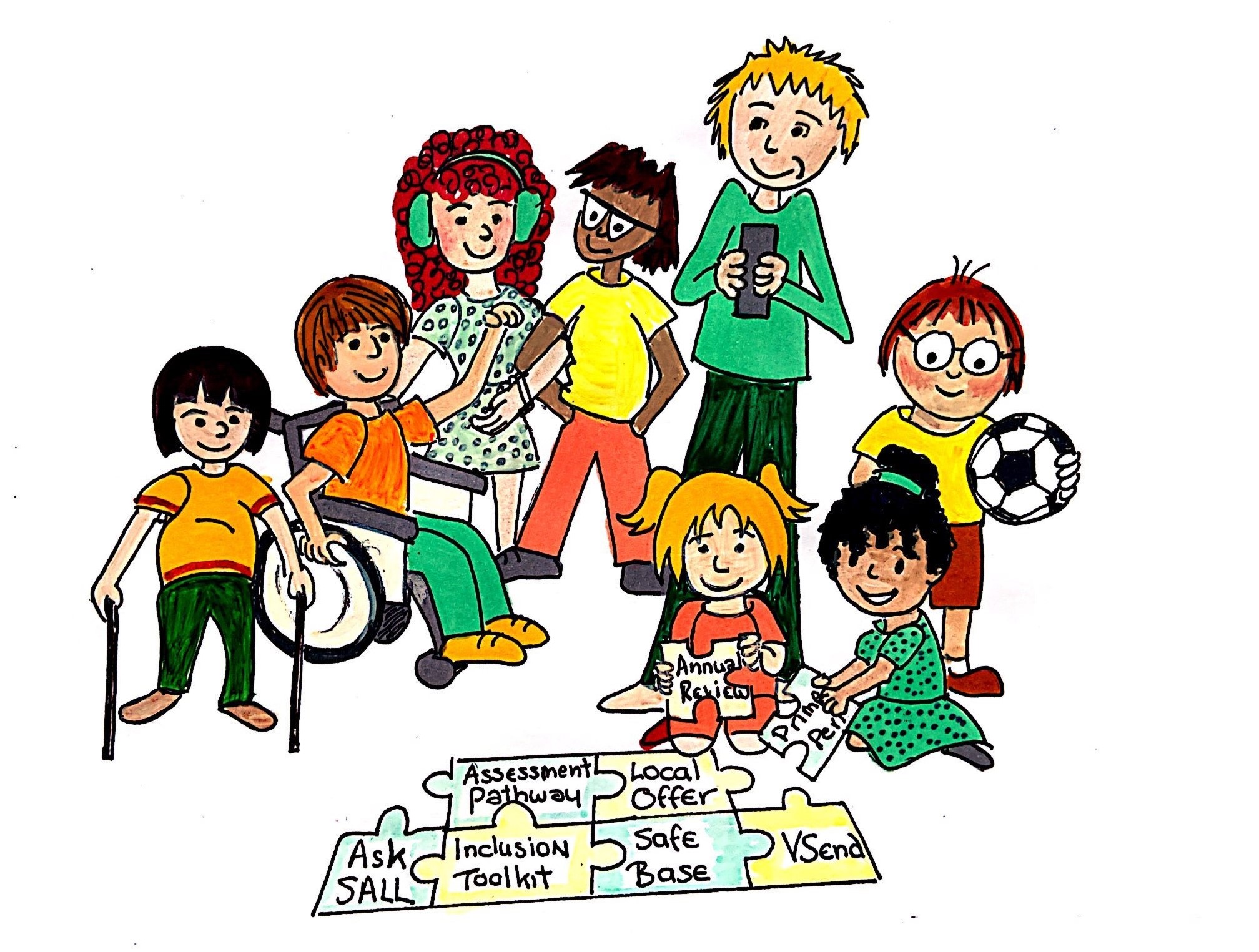Level 5-6 strategies to support specialist interventions
High quality teaching and targeted strategies, approaches and adaptations for pupils should be implemented and supplemented
0-5
- signpost the parent to support from their local Children's Centre
- additional identified adults support the child individually, under the direction of the teacher to:
- support the child across the curriculum in an inclusive mainstream setting, modify curriculum tasks where required
- teach social and emotional skills daily to address behavioural targets on individualized plan
- use key-working approaches to ensure the child has a trusted adult to offer support or withdrawal during vulnerable times
- plan and deliver time-limited and evaluated intervention programmes with familiar staff who have knowledge, skills and experience to address child’s specific needs, may include the need for time to reduce anxiety outside of the base
- personalise reward systems known to all staff who have contact with the child so that they can be implemented consistently across the curriculum
- enable some planned time in smaller groups in order to develop social skills and emotional resilience
- provide family support
- there is a specialist Integration pathway which can support settings to support children with particular behavioural difficulties. Please contact your early years specialist teacher to discuss this with them
- talk to the child’s school if they are due to transition, to arrange a transition meeting to create a plan with the parent or carer and school
5-16
Behaviour for learning
- discuss seating arrangements with the pupil and decision making is informed by observations and sharing good practise with other practitioners
- set realistic targets regarding expectations, challenge non-compliance in line with the individualised plan for the pupil
- use consistent language and de-escalation strategies following non-compliance to avoid escalation
- challenge non-compliance discreetly to avoid negative impact on social inclusion
- strategies aimed at building the pupil’s stamina to wait and regulate during question and answer sessions should be utilised. Staff to be mindful of expectations linked to diagnosed needs such as ADHD
- extra-curricular activities and trips are encouraged, supported by risk assessment. Focus on capturing the pupil’s interests
- vocational learning or work experience may supplement the core offer for key stage four learners
- any access arrangements such as separate room and rest breaks are used for all formal assessments (ER and SR)
- group supervision enables staff to identify strengths and strategies that have proven effective as well as to problem-solve
- pupils may access alternative provisions, bespoke or personalised package
Social skills
- ensure there are opportunities to plan for social expectations both in the learning and unstructured context
- the timetable may be adjusted to allow more time with key adult and solutions focused or other social and emotional work
- planning for unstructured times must be provided. This could include small group or structured play opportunities to scaffold social skills
- opportunities for intervention linked to risk taking behaviours
Emotional regulation and self-regulation
- daily interventions to develop emotion-regulation skills. These will directly teach the pupil the skills of recognising and regulating their emotions and learn strategies to lessen their effect and manage them. For example, through scenario-based discussions, visual approaches like comic strip conversations, role-play and enable the child or young person to practice these skills
- the above work would also focus on equipping the pupil with the emotional vocabulary to be able to highlight and pro-actively seek support (which over time would move to self-management) when the pupil is feeling distressed
- time out cards enable access to a safe base and co-regulating adult, there is time in, not time out. Staff to be mindful that this requires executive functioning therefore explicit teaching and rehearsal must be implemented
- grounding and regulating strategies are taught, practiced and deployed within the daily routine
General
- specialist advice, for example from BOSS, HML or CAMHS, may inform the support plan which will be underpinned by an up-to-date assessment such as Boxall
- there is a daily check-in and check-out with key adult, long enough to ensure that any worries are shared and mitigated
- the key adult makes regular contact with home, developing a close link and acting as advocate, safe base or single point of contact
- access to therapeutic approaches. For example, Cognitive Behavioural Therapy (CBT), solution focused, motivational interviewing and narrative therapy
- all staff are aware of emotional vulnerability and understand behaviour as communication. They are updated as required on events outside of home or in the past which have impacted and also the current management strategies that are in place
- staff should use therapeutic approaches, on a daily basis, to support and contain the pupil. For example through the use of principles like validation and containment in their day-to-day interactions with the pupil, as well as opportunities for appropriate therapeutic support
- social and emotional targets are SMART and owned' by the pupil. Staff are aware of these and progress
- time-limited intervention programmes with familiar staff that have knowledge, skills and experience to address pupil’s specific needs, which may include withdrawal
- teaching focusing on both learning and social emotional curriculum or outcomes throughout the school day. Targets informed by specialist assessment or pastoral support programme (PSP)


